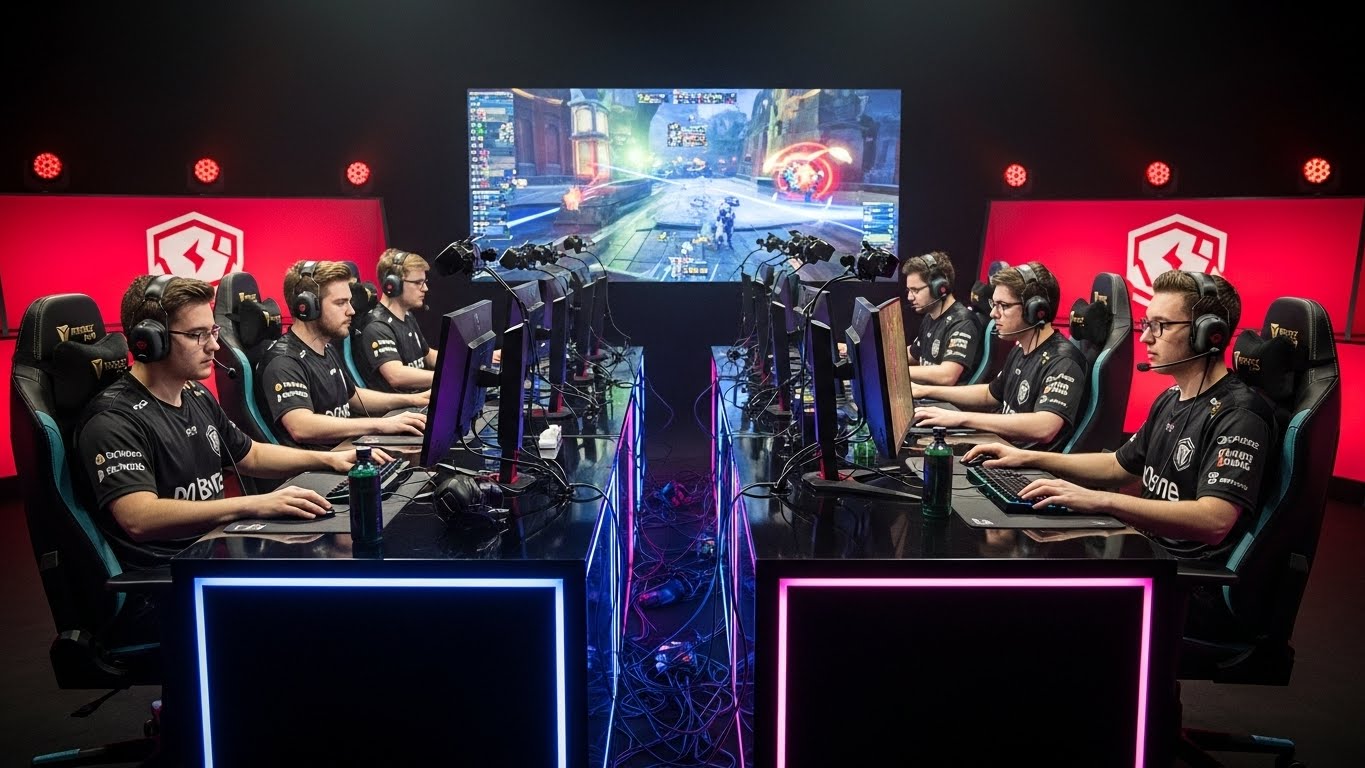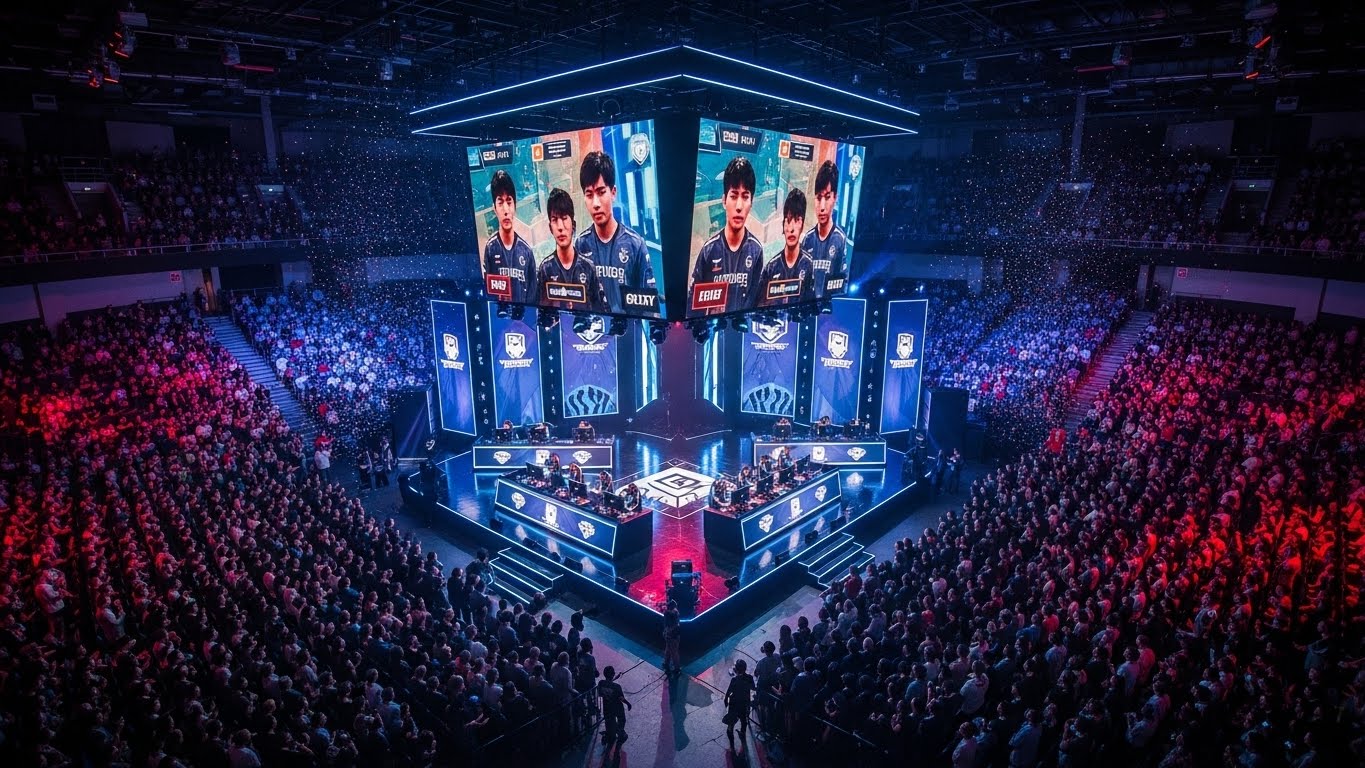Introduction to the World of Esports
Esports, short for electronic sports, has evolved from a niche hobby into a global phenomenon that captivates millions of players and spectators around the world. What began as simple video game competitions among friends has transformed into a professional, multi-billion-dollar industry that rivals traditional sports in popularity, production value, and cultural influence. Esports has become more than just a pastime; it is now a lifestyle, a profession, and a global entertainment powerhouse.
Over the past two decades, the esports industry has grown exponentially due to technological advancements, widespread internet accessibility, and the cultural shift toward digital entertainment. From local arcade tournaments to sold-out stadium events streamed to millions of fans online, the journey of esports represents the incredible power of technology and community in shaping modern culture.
The Historical Origins of Esports
The story of esports begins in the early days of gaming history. The first known video game competition took place in 1972 at Stanford University, where students played “Spacewar!” for a chance to win a year’s subscription to a magazine. Though it was small, it marked the beginning of organized gaming competition.
In the 1980s, gaming started to reach the masses with arcade classics like “Pac-Man” and “Donkey Kong.” The high score leaderboards in arcades encouraged friendly competition and inspired gamers to test their skills against others. In 1980, Atari hosted the “Space Invaders Championship,” which attracted more than 10,000 participants across the United States, signaling the first major step toward large-scale competitive gaming.
As the 1990s arrived, the rise of personal computers and home consoles transformed gaming into a more accessible and connected activity. Titles like “Street Fighter II,” “Doom,” and “Quake” helped pioneer multiplayer gaming experiences. The launch of local area network (LAN) parties allowed gamers to compete head-to-head, setting the stage for the birth of modern esports. By the late 1990s, professional tournaments for games like “StarCraft” and “Counter-Strike” began to appear, especially in South Korea, where esports started to gain governmental and media support.
The Global Expansion of Esports
The early 2000s saw esports grow from a regional interest into a global movement. With faster internet speeds and online multiplayer platforms becoming mainstream, players could compete with others around the world. South Korea became the epicenter of esports, with television channels dedicated to broadcasting matches of “StarCraft,” one of the most influential games in esports history.
In North America and Europe, organizations like Major League Gaming (MLG) and the Electronic Sports League (ESL) emerged, giving professional players structured platforms to compete. As streaming services like Twitch and YouTube Gaming appeared, fans could easily watch their favorite players and tournaments live, making esports more accessible to a global audience.
The 2010s marked the true explosion of esports into mainstream entertainment. Games like “League of Legends,” “Dota 2,” and “Counter-Strike: Global Offensive” introduced massive international tournaments with prize pools in the millions. The “League of Legends World Championship” began filling stadiums, while “The International,” hosted by Valve for “Dota 2,” shattered records for prize money year after year.
The Structure of Modern Esports
Modern esports mirrors traditional sports in its organization, structure, and fan engagement. Professional esports teams operate like conventional sports franchises, with players, coaches, analysts, and support staff working together to achieve success. Players undergo rigorous training, maintain strict schedules, and even follow fitness and nutrition regimens to stay competitive.
Tournaments are organized by both developers and third-party organizations. The competitive scene varies by game; some, like “Overwatch” and “Valorant,” operate franchise-based leagues similar to the NBA or Premier League, while others, such as “Dota 2” and “CS:GO,” maintain open circuits with independent teams competing across multiple events throughout the year.
Spectators play a massive role in esports, with millions tuning in to watch tournaments online or live in arenas. Commentators, known as “casters,” provide analysis and excitement, while production teams deliver a broadcast experience rivaling any traditional sport. The sense of drama, skill, and teamwork in esports attracts fans from every corner of the world.
The Business and Economics of Esports
Esports is no longer just a hobby—it’s big business. The global esports industry is projected to surpass billions of dollars in revenue, driven by sponsorships, advertising, ticket sales, and merchandise. Major corporations have entered the space, sponsoring teams, players, and tournaments. Tech giants, beverage brands, and even automobile companies see esports as a valuable marketing opportunity to reach younger, tech-savvy audiences.
Streaming platforms have also fueled the economic rise of esports. Popular streamers and professional players generate income through sponsorships, donations, and ad revenue. Esports organizations have learned to capitalize on branding and content creation, transforming their players into influential personalities with millions of followers.
Prize pools have reached extraordinary heights. “The International 2019” boasted a prize pool of over 30 million dollars, while other tournaments regularly offer multi-million-dollar rewards. The combination of sponsorship deals, media rights, and community funding has turned esports into one of the most financially dynamic sectors of entertainment.
Esports as a Career Path
A few decades ago, becoming a professional gamer might have sounded unrealistic. Today, it is a legitimate and respected career choice. Professional players train full-time, often living in team houses or training facilities equipped with state-of-the-art technology. They participate in tournaments, create content for fans, and serve as ambassadors for their teams and sponsors.
Beyond playing, esports has created a wide array of career opportunities. Coaches, analysts, event organizers, game developers, marketers, and broadcasters all play essential roles in the ecosystem. Universities and colleges around the world have begun offering esports degrees and scholarships, recognizing the industry’s potential to produce skilled professionals.
The Social and Cultural Impact of Esports
Esports has transcended gaming to become a cultural movement. It unites people from different backgrounds, languages, and regions under a shared passion for competition and technology. Online communities allow fans to connect globally, forming friendships and rivalries that span continents.
In countries like South Korea, esports players are treated as celebrities, enjoying sponsorships and fan followings akin to movie stars. Esports has also helped challenge stereotypes about gaming being an isolated or unproductive hobby. The teamwork, communication, and strategic thinking required in professional play have highlighted gaming’s intellectual and social benefits.
Esports has also been instrumental in driving gender diversity discussions within gaming. Although male players still dominate the professional scene, female gamers and mixed-gender teams are steadily gaining recognition. Initiatives promoting inclusivity and equality are reshaping the industry’s image and opening doors for more diverse participation.
The Role of Technology in Esports Growth
The rapid growth of esports is deeply intertwined with technological innovation. High-speed internet, powerful graphics cards, and advanced streaming platforms have made it possible for millions to watch and play without geographical barriers. The evolution of cloud gaming and artificial intelligence continues to enhance player performance and audience experience.
Virtual reality (VR) and augmented reality (AR) promise to take esports to the next level by offering immersive and interactive experiences. The development of 5G networks further reduces latency, making real-time online competition smoother than ever. As technology continues to advance, the line between digital and physical sports will blur even more.
Esports and Education
Esports has made its way into the academic world, proving its relevance beyond entertainment. Educational institutions are recognizing the value of esports as a tool for developing skills like teamwork, leadership, problem-solving, and communication. Many schools have started esports clubs, while universities now host competitive leagues and even award scholarships to talented players.
Esports management and game design programs have emerged as popular academic paths, providing students with opportunities to study the industry from both creative and business perspectives. These programs help legitimize esports as a professional field and prepare students for the growing number of careers it offers.
The Future of Esports
The future of esports looks brighter than ever. As technology evolves, the industry will continue to expand into new territories and attract even more fans. The potential inclusion of esports in future Olympic events is being seriously considered, further solidifying its status as a global sport.
Mobile esports is another rapidly growing sector, particularly in regions like Asia and South America. Games such as “PUBG Mobile,” “Mobile Legends,” and “Free Fire” have brought competitive gaming to millions who may not own high-end gaming PCs or consoles. The accessibility of mobile gaming ensures that esports will remain a global movement that transcends economic barriers.
Furthermore, as virtual reality and metaverse concepts continue to develop, esports may evolve into fully immersive digital experiences where players and fans can interact in virtual environments. These innovations could redefine what competition and entertainment look like in the digital age.
Challenges Facing the Esports Industry
Despite its success, esports faces several challenges. Player burnout is a significant issue due to the intense schedules and mental pressure of competition. Many players retire in their early twenties, leading organizations to invest more in player wellness and mental health support.
Cheating and match-fixing also pose threats to the integrity of the sport. Developers and organizers are working to implement stricter regulations and advanced anti-cheat systems to maintain fair play.
Monetization remains another area of concern. While viewership is massive, converting that audience into sustainable revenue streams continues to be a challenge. Balancing corporate sponsorships with community-driven authenticity is key to maintaining fan trust.
Esports and Traditional Sports: A New Rivalry and Partnership
Esports and traditional sports are no longer competitors but collaborators. Many sports organizations and franchises have entered the esports scene, creating digital versions of their games or sponsoring esports teams. The NBA, Formula 1, and football clubs around the world have all invested in esports divisions.
The skills and strategies in esports mirror those in physical sports. Both require precision, teamwork, communication, and mental endurance. As the two worlds continue to intersect, hybrid events that combine real-world and digital competition are becoming more common, showcasing the versatility of human competition.
Conclusion: Esports as the Future of Global Entertainment
Esports represents one of the most dynamic and transformative movements of the modern era. It has bridged the gap between technology and entertainment, redefined what it means to be an athlete, and connected millions of people across the globe through shared passion and skill.
From humble beginnings in university labs to massive stadium events and global broadcasts, esports has come a long way. It stands as proof that digital entertainment can be just as thrilling, meaningful, and influential as traditional sports. As we move into an increasingly digital future, esports will continue to shape culture, redefine competition, and inspire new generations to dream—not on the field or the court, but in the limitless world of pixels and imagination.
With its fusion of skill, strategy, creativity, and community, esports has truly earned its place as the sport of the future—a powerful symbol of how far human innovation and passion can go when fueled by the boundless possibilities of technology.



